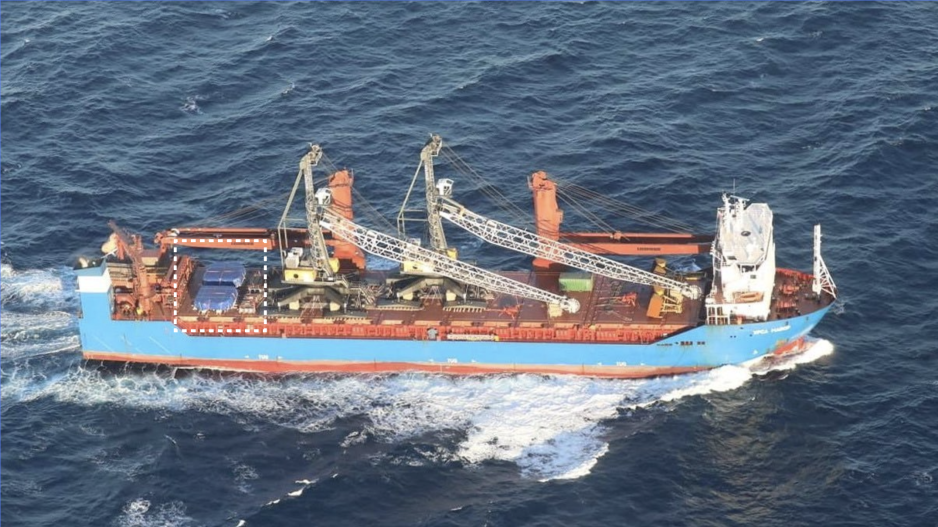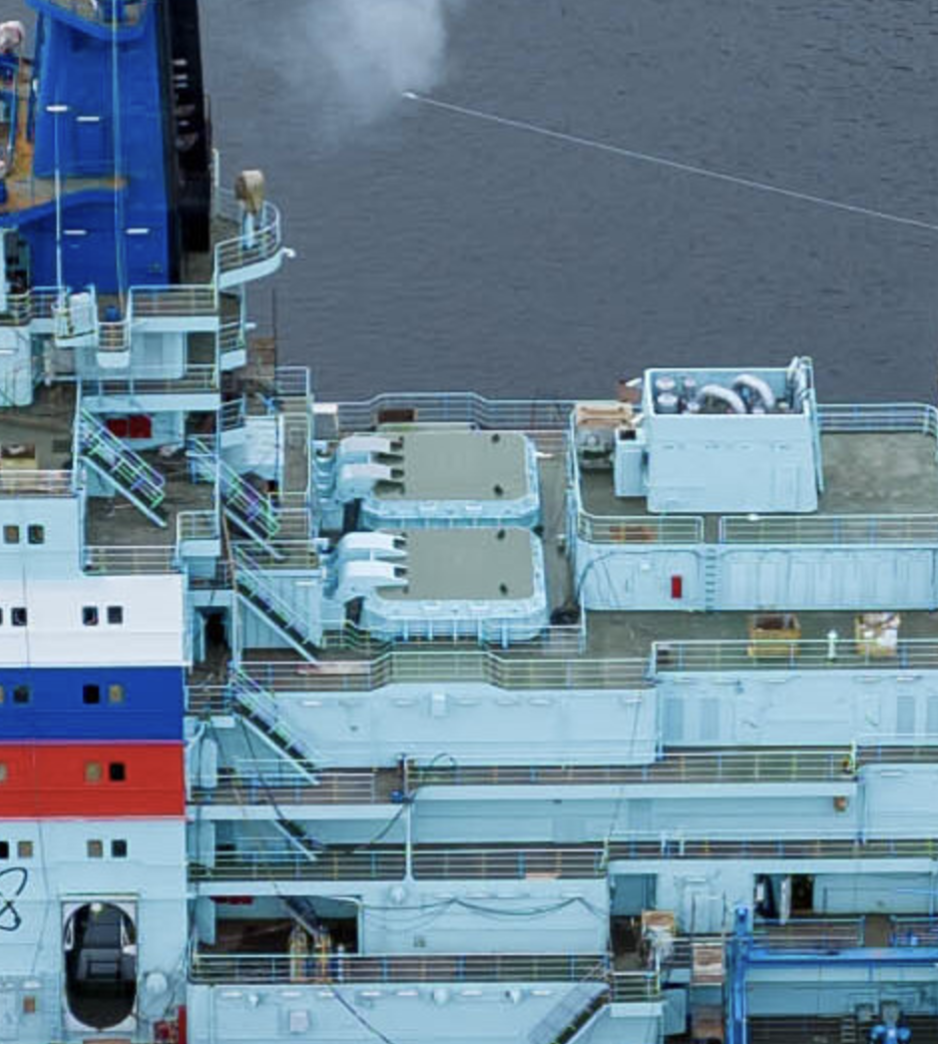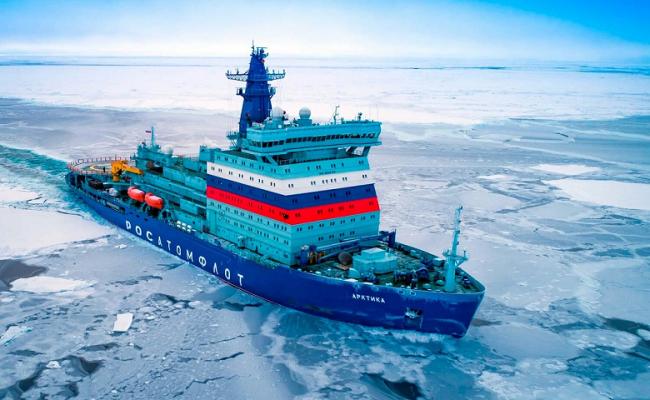Sinking of Russian Ship in the Mediterranean Could Delay Leader-class Nuclear Icebreaker ‘Rossiya’

Ursa Major loaded with hatch covers (marked) and cranes. (Source: Oliver Alexander via X/Media handout)
The loss of two reactor hatch covers for the Rossiya nuclear icebreaker in a cargo vessel sinking in the Mediterranean spells unwelcome news for Russia. The cargo ship Ursa Major was traveling from St. Petersburg to Vladivostok when it experienced an engine room explosion and subsequently sank.
Russia’s flagship Leader-class icebreaker program faces uncertainty following the sinking of a cargo ship transporting massive, custom-made covers for the vessel’s nuclear reactor. The 45-tonne heavy reactor hatch covers provide access to the vessel’s power plant.
The cargo vessel Ursa Major sank in the western Mediterranean near Gibraltar the day before Christmas traveling from St. Petersburg with destination Vladivostok in Russia’s Far East.
Following an explosion in the engine room the ship developed a severe list to starboard aft before sinking hours later on December 23. The cause of the sinking remains under investigation, with Russian officials calling the incident a "terrorist attack."
Rescue operation
Ursa Major is not unknown with respect to maritime emergencies. In November 2020 the vessel, called Sparta 3 at the time, was the target of a month-long rescue operation on the Arctic Northern Sea Route (NSR).
At the time the vessel, operated by Oboronlogistics, a transport service provider for Russia’s Ministry of Defense, deviated from the approved route in violation of its NSR permit traveling into the Gulf of Yenisei to Dudinka getting trapped in a buildup of sea ice.
Russia’s Rosatom condemned the operator’s actions at the time
Oboronlogistics attempted to free the vessel using a local ice-rated tug but to no avail. Deep into the month of December nuclear icebreaker Vaigach had to be dispatched to mount a rescue operation.
Setback
Following steering issues additional icebreakers took part in the complex operation towing and escorting the vessel back to Murmansk. In a rare and strongly-worded statement Russia’s Rosatom condemned the operator’s actions at the time.
The loss of the reactor hatch covers represents a further setback for the Leader-class icebreaker program. Contracted in 2020 for a launch in 2027 construction on Rossiya has fallen 3-4 years behind schedule.
Originally Rossiya was to become one of three Leader-class icebreakers designed to ensure year-round shipping on the Northern Sea Route.
Twice as powerful
But financing constraints and shipyard availability have since led to the cancellation of all but the lead vessel, Rossiya.
Twice as powerful as existing Russian nuclear icebreakers the class can open wide-enough channels in the ice for commercial oil and gas tankers to pass through even during the heart of winter.
The Far East Zvezda yard has reported only limited progress on the vessel’s construction. Work on the ship’s nuclear reactors themselves began at ZiO-Podolsk in early 2022.
Up to a year
Manufacturing replacement hatches could take between several months and up to a year, several experts HNN spoke with speculated. Given Rossiya’s delays the loss of the hatch covers may not immediately impact construction progress.
They won’t be needed for installation before the reactors are mated with the vessel, not for another couple of years.

Hatch covers on the Arktika-class nuclear icebreaker similar to the covers on the Leader-class. (Source: Atomflot)
Nonetheless, the loss of the hatches represents another in a string of recent setbacks for Russia’s Arctic shipping and resource ambitions.
U.S. and EU sanctions have largely frozen Arctic shipbuilding construction with Russian officials looking to build several hundred vessels in the coming years to carry natural resources from northern projects.
Half a dozen LNG tankers remain stuck at a South Korean yard and several others under construction at the Zvezda yard are faced with delays due to a lack of Western technology and equipment.



